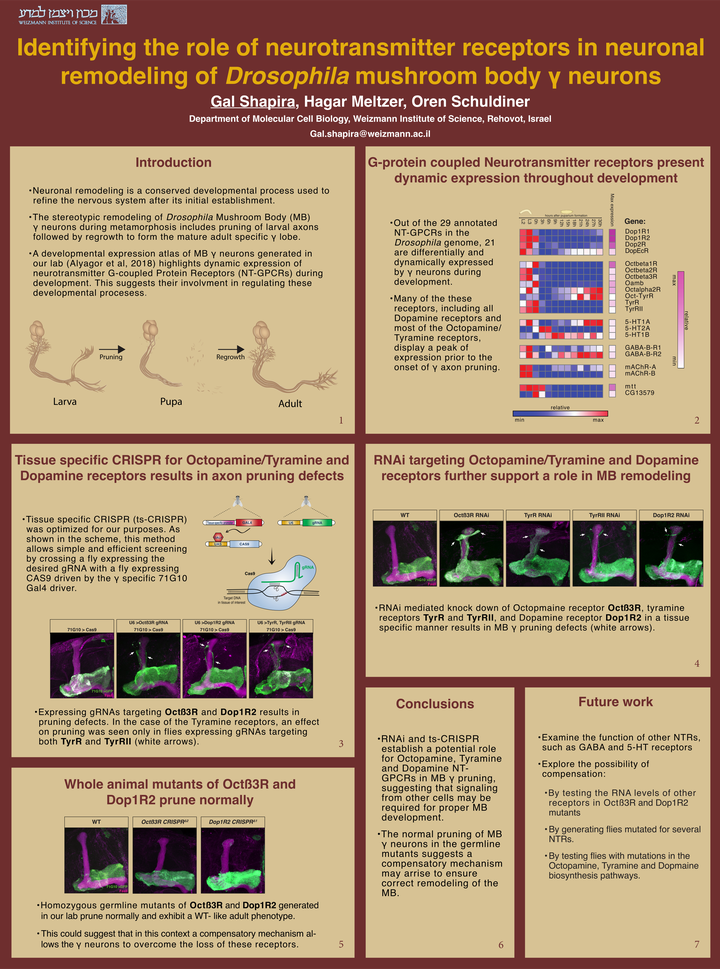Identifying the role of neurotransmitter receptors in neuronal remodeling of Drosophila mushroom body neurons

Abstract
Neuronal remodeling is a late developmental mechanism used to refine nervous systems after their initial establishment. The stereotypic remodeling of Drosophila Mushroom Body (MB) γ neurons during metamorphosis includes pruning of larval axons followed by regrowth to form the mature adult specific γ lobe. By learning more about the molecular players which govern these processes during MB development, we may gain insights into processes underlying different neurodegenerative diseases, some of which have been proposed to share similar mechanisms. A developmental expression atlas of MB γ neurons generated in our lab has highlighted the remarkable dynamic expression of neurotransmitter receptors (NTRs) during development. The expression of some NTRs exhibits increased expression before or at the onset of metamorphosis, potentially suggesting they might be important for cell-cell interaction during remodeling. Using different loss of function strategies, including tissue specific (ts)CRISPR, which we have optimized in our lab, we knocked out/down the expression of key NTRs specifically in MB γ neurons and examined the effect this has on MB remodeling. Our initial results indicate that Octopamine and Tyramine signaling may be important for MB pruning, as RNAi and tsCRISPR of several of these NTRs belonging to these families results in a defects in pruning. We are currently conducting experiments to better understand the relative contribution of each NTR, mostly focusing on the Octopamine, Tyramine, Dopamine and Serotonin receptors. This study aims at gaining a holistic picture of the role of cell-cell communication that is mediated via NT transmission during neuronal remodeling of MB γ neurons.